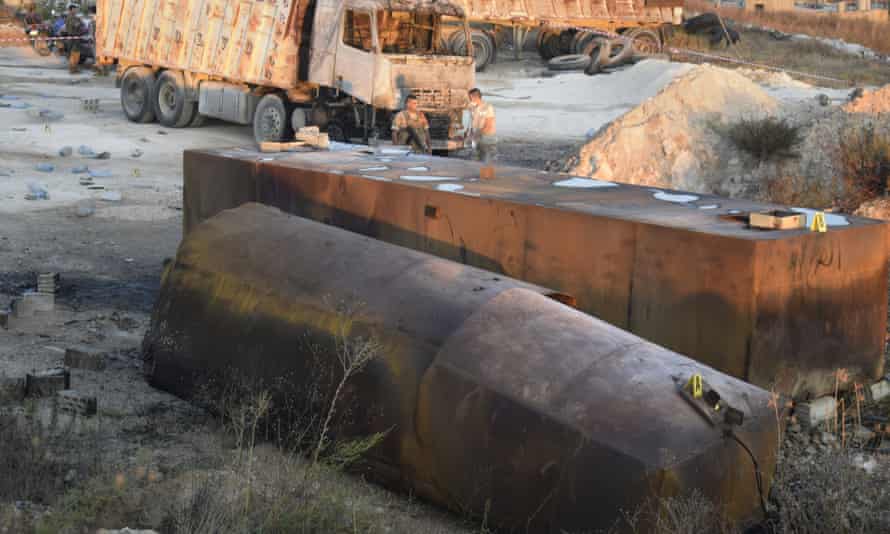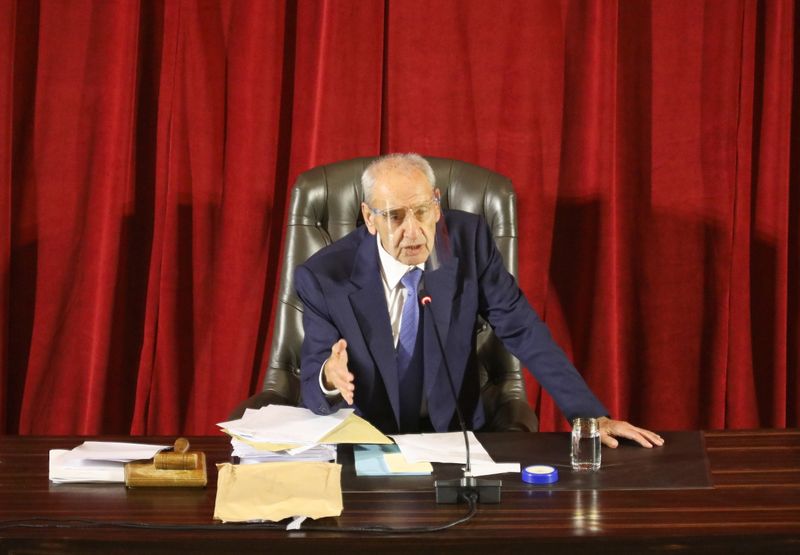
by asumetech.com -- In Lebanon, fears of “time bombs” represented by petrol and diesel fuel stored in or near residential buildings are growing, days after the disaster of the explosion of a fuel tank in the village of Al-Talil in the Akkar region, which left more than 100 casualties including dead and wounded, the dead will be buried today. Lebanon has been suffering from severe fuel shortages for months, which has prompted many citizens to store gasoline or diesel in their homes or rooms and warehouses under their homes. in plastic containers e in unsafe conditions, while black market traders have been active on a higher level by stockpiling large quantities of these materials in various locations in all of Lebanon, and sometimes in populated areas, hoping to sell them at prices much higher than the official price for these subsidized materials.
After three days of intense raids, the army announced on Tuesday that it had seized more than 4 million liters of gasoline and 2.2 million liters of mazout and forced them to sell most of them on the market, after being discovered inside. of concrete, iron or plastic drums, showing the extent of the danger that threatens civilians. Atef Mansour, mayor of Burj al-Barajneh and al-Raml al-Aali, a suburb of Beirut, launched an appeal Tuesday on behalf of the population of the area, “to the security forces to speed up the emptying of the enormous quantities of fuel stored under the their homes … to avoid a repeat of the disaster of Tallil “in Akkar. “The neighborhood sleeps on the crater of a volcano, they saved it,” he added. The specialized journalist in environmental issues, Mustafa Raad, said: “Storing gasoline and diesel in homes is equivalent to hiding a time bomb among the homes of safe people, as these homes are not equipped against fire, and the rapid interaction of these materials with oxygen , which increases the rate of fire spread throughout the house and residential floors.
١٥ سنة مرت على بدء عملية انتشار الجيش في الجنوب التي انطلقت صباح ١٧ آب ٢٠٠٦ بعد غياب قسري عن دوره الطبيعي …

By Noemi Jabois Beirut, (EFE).- The recent worsening of the fuel crisis in Lebanon has the country’s hospitals on the ropes, given that they need fuel to supply electricity and are also facing a significant lack of medicines, medical supplies and liquidity that is threatening to cost many lives. Since Lebanon’s Central Bank announced last week the end of fuel subsidies, the already acute shortage has resulted in almost no available diesel fuel to operate electric generators at a time when public electricity service is all but non-existent. After a fuel storage facility blew up on Aug. 15 in the southern district of Akkar killing almost 30 people and injuring 79, the Lebanese Geitaoui-UMC Hospital in Beirut has received 15 of those patients, two of whom have been released and one who was transferred to Turkey by plane.
Naji J. Abi Rached, the medical director of the hospital, told EFE that among the 12 people who remain hospitalized after the blast are patients with burns on 80-100 percent of their bodies and for whom there is a “very high risk that they will not survive.” With its Burn Unit considered to be a “regional reference point,” the private hospital is fighting to deliver “costly” and “high-intensity” treatment that the patients need. Abi Rached estimated that the patients will undergo at least two months of “critical care” with “surgeries, daily monitoring, antibiotics, infusions, hydration, morphine and intubation” as part of their treatment. “The estimated cost per patient is $800 per day and the estimate of what the state will cover is about 1 million Lebanese pounds, which is only one-fifteenth the cost,” the cardiologist said, this in a country where $1 is equivalent to 20,000 pounds on the black market while the official exchange rate stands at 1,500 pounds per dollar.

BEIRUT (Reuters) -The Lebanese parliament will convene on Friday to discuss what to do about a fuel crisis that has brought much of the country to a halt and sparked deadly violence. Speaker Nabih Berri called the session to discuss “appropriate action” over crippling fuel shortages, a crunch point in a two-year financial meltdown that marks Lebanon’s worst crisis since the 1975-90 civil war. A rocket-propelled grenade was fired near a Beirut petrol station during a dispute over gasoline, a security source said. Gunmen opened fire on soldiers who had detained a man who tried to fill his car by force. The station caught fire. The steadily worsening fuel crisis has hit a low in the last week, with power blackouts forcing some hospitals, bakeries, and businesses to scale down or close.
A senior U.N. official said water supplies and essential health services were threatened, warning of a humanitarian catastrophe. “A bad situation only stands to get worse unless an instant solution is found,” said Najat Rochdi, the U.N. humanitarian coordinator for Lebanon. Last week, the central bank announced it could no longer finance imports of gasoline and diesel at heavily discounted exchange rates, effectively ending a subsidy scheme which promises to increase prices sharply. Governor Riad Salameh has been at odds with the government over the move, as the government says it should have been done only after the provision of prepaid cash cards for the poor.
Khazen History


Historical Feature:
Churches and Monasteries of the Khazen family

St. Anthony of Padua Church in Ballouneh
Mar Abda Church in Bakaatit Kanaan
Saint Michael Church in Bkaatouta
Saint Therese Church in Qolayaat
Saint Simeon Stylites (مار سمعان العامودي) Church In Ajaltoun
Virgin Mary Church (سيدة المعونات) in Sheilé
Assumption of Mary Church in Ballouneh
1 - The sword of the Maronite Prince
2 - LES KHAZEN CONSULS DE FRANCE
3 - LES MARONITES & LES KHAZEN
4 - LES MAAN & LES KHAZEN
5 - ORIGINE DE LA FAMILLE
Population Movements to Keserwan - The Khazens and The Maans
ما جاء عن الثورة في المقاطعة الكسروانية
ثورة أهالي كسروان على المشايخ الخوازنة وأسبابها
Origins of the "Prince of Maronite" Title
Growing diversity: the Khazin sheiks and the clergy in the first decades of the 18th century
Historical Members:
Barbar Beik El Khazen [English]
Patriach Toubia Kaiss El Khazen(Biography & Life Part1 Part2) (Arabic)
Patriach Youssef Dargham El Khazen (Cont'd)
Cheikh Bishara Jafal El Khazen
Patriarch Youssef Raji El Khazen
The Martyrs Cheikh Philippe & Cheikh Farid El Khazen
Cheikh Nawfal El Khazen (Consul De France)
Cheikh Hossun El Khazen (Consul De France)
Cheikh Abou-Nawfal El Khazen (Consul De France)
Cheikh Francis Abee Nader & his son Yousef
Cheikh Abou-Kanso El Khazen (Consul De France)
Cheikh Abou Nader El Khazen
Cheikh Chafic El Khazen
Cheikh Keserwan El Khazen
Cheikh Serhal El Khazen [English]
Cheikh Rafiq El Khazen [English]
Cheikh Hanna El Khazen
Cheikha Arzi El Khazen
Marie El Khazen